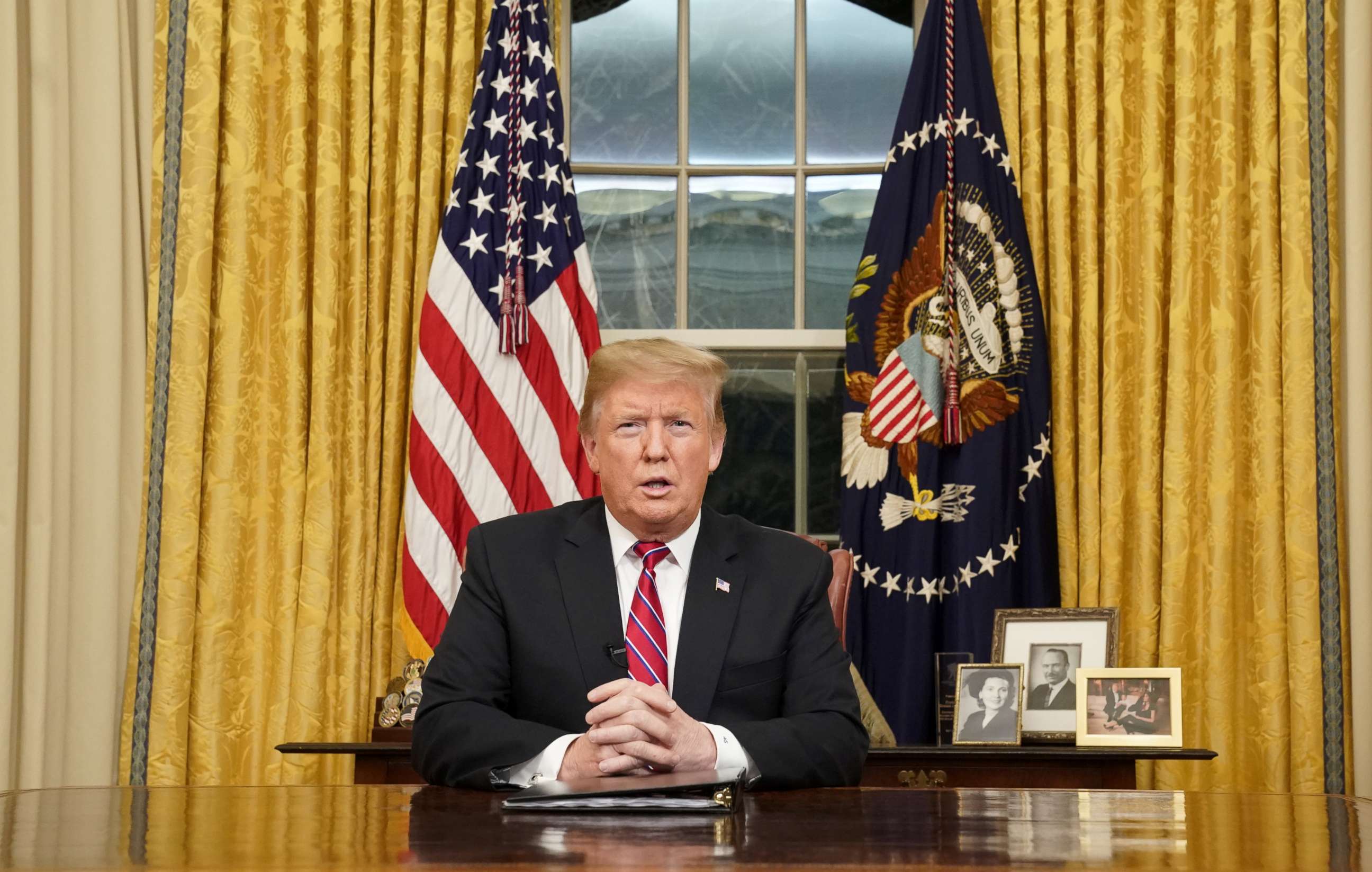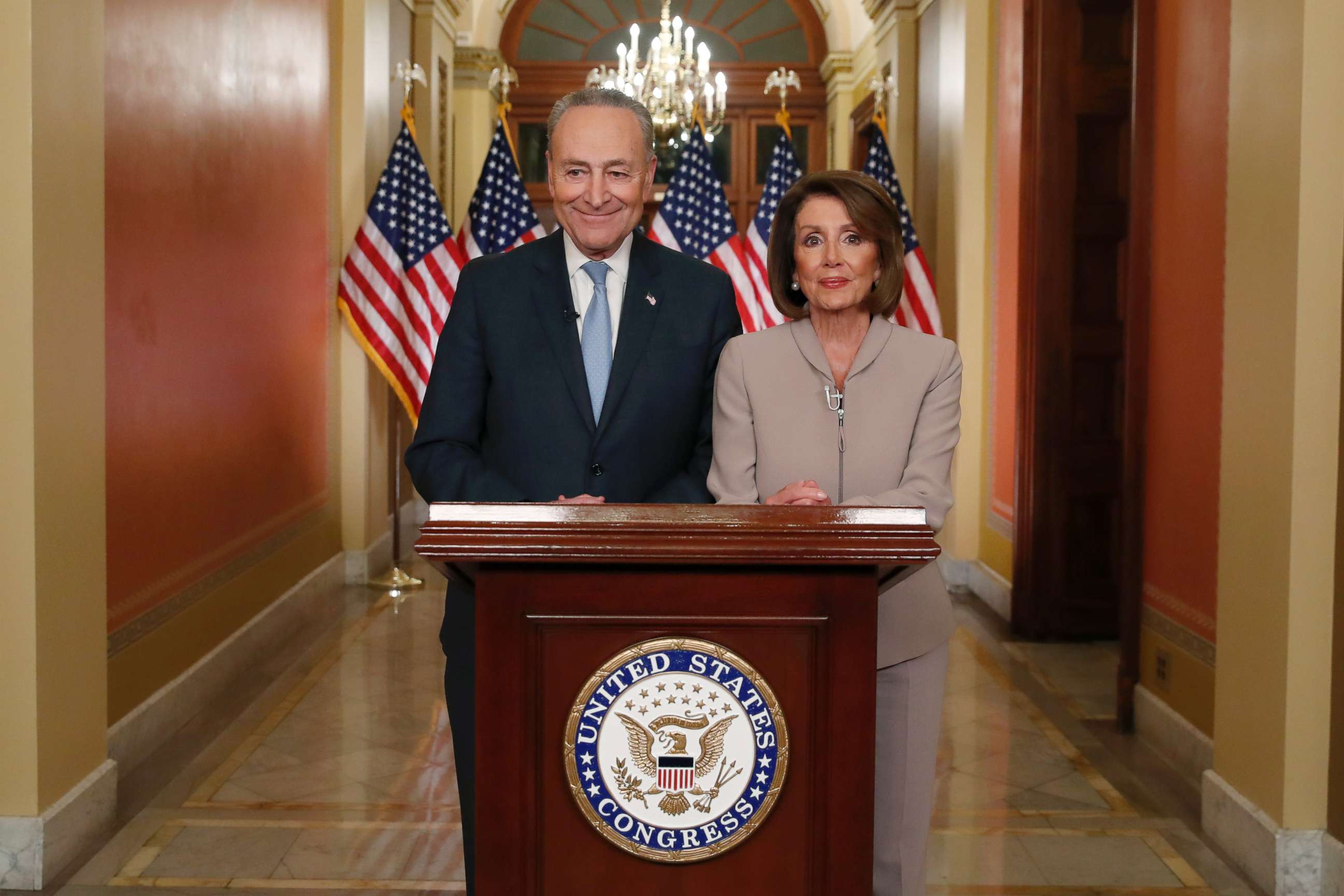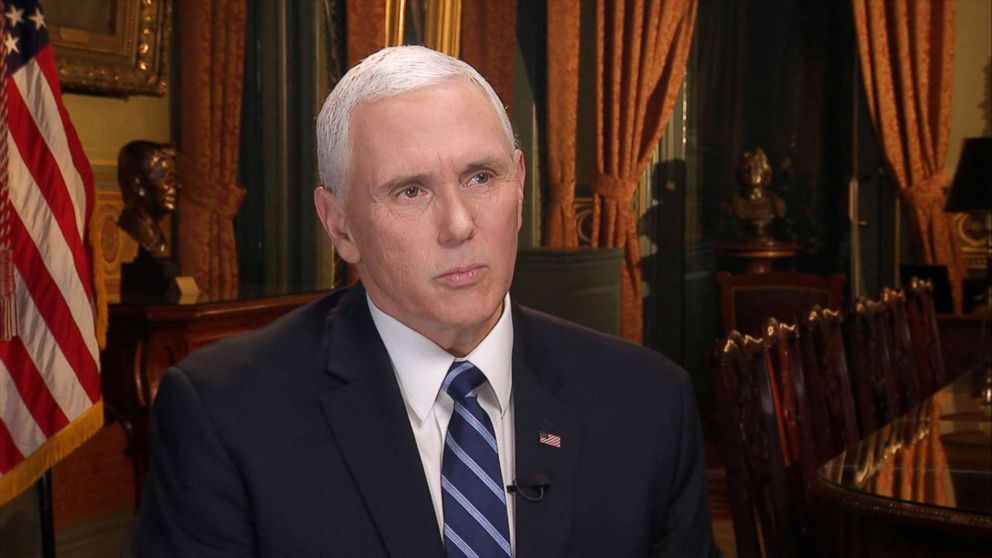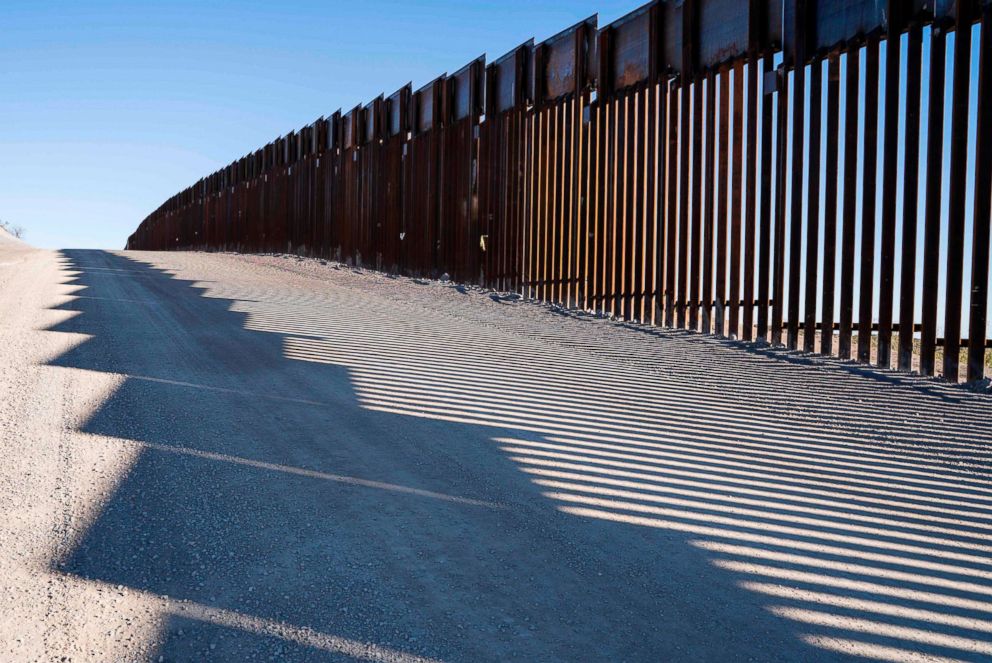In prime-time address, Trump argues national security 'crisis' at southern border
"This is a humanitarian crisis, a crisis of the heart, a crisis of the soul."
President Donald Trump used his first Oval Office address to the nation to urge Congress to address what he called a “growing humanitarian and security crisis” at the southern border by approving funds for a border wall to address drug trafficking and illegal immigration, giving no indication that he plans to abandon his effort amid the 18-day government shutdown.
"This is a humanitarian crisis, a crisis of the heart, a crisis of the soul," he said.
Democratic leaders accused the president of manufacturing a crisis to build the wall -- fulfilling his signature campaign promise -- and called on him to accept legislation to reopen federal departments and dozens of agencies while continuing border security talks with Congress.

Trump implored Congress to think of the families of Americans murdered by illegal immigrants, without quantifying the figure.
"I have met with dozens of families whose loved ones were stolen by illegal immigrants. I have held the hands of the mothers and embraced the grief stricken fathers," he said. "I will never forget the pain in their eyes, the tremble in their voices, and the sadness gripping their souls."
The president urged Congress to take up his administration's request for $5.7 billion in border wall funding, along with millions for additional detention beds and new screening technology.
"These are the resources they have requested to properly perform their mission and keep America safe. In fact, safer than ever before," he said of border agents and law enforcement.
Trump claimed the border wall would "quickly pay for itself," and that it would be paid for indirectly through the new trade deal with Canada and Mexico, an assertion disputed by economists.
The president then tweeted video of his address.

In a short response to Trump's remarks Tuesday night, House Speaker Nancy Pelosi, D-California, accused Trump of holding federal workers and the government hostage "over his obsession with forcing American taxpayers to waste billions of dollars on an expensive and ineffective wall -- a wall he always promised Mexico would pay for."
"We can re-open the government and continue to work through disagreements about policy," Senate Minority Leader Chuck Schumer, D-New York, said.
Sen. Bernie Sanders, I-Vermont, in a separate response that was streamed online said the shutdown "should have never happened." He called it manufactured, with the help of right-wing ideologues and offered rebuttals to many of the president's claims.
Trump has said publicly in recent days that he is weighing the possibility of formally declaring a "national emergency" over border security -- and said he believes he has the authority to do so -- in an effort to circumvent Congress and use money allocated to the military -- or from elsewhere in the government -- to fund the wall. As of Tuesday morning, Vice President Mike Pence, in an interview on ABC's "Good Morning America," said the president had yet to make a decision, saying, “It’s something that he’s looking at.”
Pence traveled to Capitol Hill Tuesday afternoon to rally congressional Republicans ahead of the president's speech.

Trump is expected to head to Capitol Hill on Wednesday to meet with Senate Republicans.
Later Wednesday, key Congressional leaders are expected to return to the White House to meet face-to-face with the president for the third time in the ongoing shutdown standoff. The leaders last sat down on Friday.
As part of the president's public relations offensive, the White House said, he plans to go to the southern border on Thursday to visit with those on the "frontlines" as he continues to make the argument that a wall is essential to "national security" during which he's made numerous false claims and exaggerations.
"We have an absolute crisis, and of criminals and gang members coming through. It is national security. It's a national emergency," Trump said on Sunday, as he spoke about his deliberations.

The White House put out a news release Tuesday afternoon citing the president's call for a "wall" and repeating his talking points that the "southern border is overwhelmed with illegal immigration, gang violence, crime, drugs and human trafficking."
But in calling on Congress to "do more to address the border crisis" the White House used the term "physical barrier" -- not wall -- and Trump himself has said "steel slats" would be acceptable.
"We cannot keep our country safe without adequate funding for Border security, including a physical barrier and increased in funding for law enforcement," the release said.
Although the president said he believes he has the authority to declare a national emergency, such an action would almost certainly be challenged in the courts.
The president told reporters Sunday that his decision on whether to declare an emergency would hinge on the status of an ongoing political impasse with Democrats over the president’s demand that a border wall be funded as part of an agreement to reopen shuttered portions of the federal government.
“I may declare a national emergency dependent on what’s going to happen over the next few days,” Trump said Sunday. “We have a meeting with Vice President Pence and a group will be going to a certain location that you know where that and they’ll be having another meeting.”
As the president seeks to make a renewed case of urgency surrounding the situation at the southern border, he is drawing from similar rhetoric that he has used for years in discussing the topic. As far back as the 2016 presidential campaign, the president spoke about the situation at the border as a crisis and a national emergency.
“As we speak, we are in the middle of an unprecedented crisis on our southern border,” he said in an Oct. 30, 2016 speech in Albuquerque, New Mexico.
“They tell us the border crisis is the worst it's ever been. It's a national emergency,” Trump said on Oct. 31, 2016 in Grand Rapids, Michigan.
Despite Trump campaigning for a wall and increased border security in the run-up to the 2018 midterm elections, Democrats gained control of the House and polls have shown most Americans oppose the president's proposed wall.
ABC News' Mary Bruce, Jon Karl, Trish Turner and Benjamin Siu contributed to this report.




